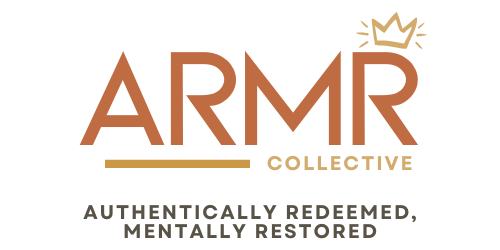The National Association of Mental Illness’s theme for Mental Health Awareness Month this year is “Awareness Into Action.” This resonates deeply with me. While talking about mental health and validating our experiences is vital, it’s just one piece of the healing puzzle. We must also discuss action steps toward healing, lest we get stuck in the mindset of “this is just how I am.”
The Validation Without Movement Cycle
I have firsthand experience of being “stuck” in my own pity party. During my darkest days with depression, I’d find myself late at night, endlessly scrolling through articles that validated how I felt. These articles served a purpose—they helped me feel less alone, less “crazy”—but they also reinforced the negative aspects of my depression. Instead of taking steps toward healing, I would read story after story that mirrored my struggles and wallow in my “poor me” mentality.
Don’t misunderstand me—wallowing is perfectly fine sometimes. God gave us emotions for a reason, and there are seasons to simply sit with our feelings. Even Jesus wept and experienced the full range of human emotions. But as Ecclesiastes reminds us, “For everything there is a season,” and there comes a time when we must begin the journey from the pit toward healing.
The Validation Trap
The stigma around mental health is slowly but surely diminishing through awareness campaigns and social media conversations. What was once NEVER talked about is becoming more of a normalized conversation. I remember feeling profound relief the first time I saw someone on Instagram openly discussing their anxiety symptoms that matched mine exactly. “I’m not alone,” I thought. “I’m not broken beyond repair.”
This validation is necessary and good. In Galatians 6:2, we’re called to “carry each other’s burdens,” and part of that means acknowledging each other’s pain.
But there’s a trap hidden within this validation culture.
When mental health challenges become fused with our identity—when “I have depression” transforms into “I am depressed” as a permanent state of being—we can inadvertently create barriers to our own growth.
This creates a mentality of “this is just how I am”.
The Action Deficit
The gap between awareness and action needs to shorten through honest conversations.
Validation without practical next steps can leave us stuck in a holding pattern.
I remember nights when I’d find myself in a black hole of reading depression articles—no longer feeling alone, but somehow feeling even more stuck. I’d read about others’ experiences that mirrored my own, nod in recognition, but then… nothing would change. I lacked the bridge from “I understand my problem” to “Here’s what I can do about it.”
Of course, there are very real barriers to mental health treatment and healing. Cost, access, and the simple lack of energy that comes with conditions like depression can be legitimate obstacles. Not everyone can afford therapy or has the support system needed for major life changes.
But small steps, no matter how small, still matter even when big changes feel impossible. In Matthew 17:20, Jesus reminds us that faith as small as a mustard seed can move mountains. Similarly, actions as small as a five-minute walk can begin to move the mountains of our mental health challenges.
Finding the Balance: Practical Steps Forward
Here are some accessible starting points that have helped me and others begin the journey from awareness to action:
- Mindful journaling: Set a five-minute timer to write about one emotion you felt today without judgment. This creates space for honesty with yourself and builds emotional awareness.
- Grounding practices: When feeling overwhelmed, use the 5-4-3-2-1 technique. Name five things you can see, four things you can touch, three things you can hear, two things you can smell, and one thing you can taste. This connects you to the present moment.
- Nature connection: Spend just 10 minutes outside observing your surroundings. Research shows even brief nature exposure can reduce stress hormones and improve mood.
- Simple self-care rituals: Make yourself a simple meal or cup of tea as an act of basic self-respect. Small acts of caring for your physical needs can help rebuild self-worth.
- Movement without pressure: Stretch for five minutes, dance to one song, or walk to the end of your driveway and back. The goal isn’t fitness—it’s gentle reconnection with your body.
“Both/and” thinking must be present when dealing with mental health struggles. We can both acknowledge the reality of our conditions AND take steps toward healing.
Finding an accountability partner has been transformative in my journey. We text each other our small wins throughout the day, which helps shift our mindset toward celebrating progress rather than dwelling on setbacks. Compassionate accountability can do wonders for healing.
Moving Forward in Community
We weren’t designed to heal in isolation. Community can help immensely in the mental health journey. But just like any village, you usually must go out and look—they most likely won’t come to you.
Asking for help is one of the bravest things you can do. It requires vulnerability and courage to admit when you’re struggling, but there are many ways to begin building support, even if formal therapy or groups feel overwhelming:
This might look like:
- Starting a text thread with one person you trust where you share one honest update each day
- Joining an anonymous online forum where people discuss similar challenges
- Finding a podcast about mental health that helps you feel less alone and gives practical tips
- Reaching out to an old friend just to reconnect, without pressure to immediately share your struggles
- Creating a small ritual with someone—like a weekly coffee or walk—that gradually creates space for deeper conversations
Remember that building support doesn’t always mean immediately diving into your deepest struggles.
Sometimes it starts with simply reconnecting with people and building consistent, positive interactions that can eventually grow into more meaningful support.
Compassionate Action
Mental health struggles are hard. I know firsthand. And I hope my words here aren’t seen as a simplistic “just be happy” message, because I know how difficult it is to climb out of the hole mental illness creates.
I see your struggle. Your pain is 100% valid, and you are absolutely not alone.
I want to hold you accountable with the same compassion I hope others would offer me. Think about it this way: A good friend wouldn’t just sit and cry with you if you broke your leg, would they? They’d validate your pain, yes, but then they’d help you to the car and drive you to the nearest hospital to get treatment.
Consider this post my attempt to drive you to the hospital. Not to minimize your suffering, but to walk alongside you toward healing.
Go on a short walk. Treat yourself to a cup of coffee. Call that therapist whose number you’ve had saved for months. Listen to your favorite song. Any and all steps, no matter how small, get you closer to healing.
What small step might you take today?
If you’re experiencing a mental health emergency, please call or text the 988 Suicide and Crisis Lifeline for immediate support, available 24/7.
For non-emergency support, the NAMI HelpLine (1-800-950-NAMI) offers information, resource referrals and support, available Monday through Friday, 10am-10pm ET.
As always, our comments section is open for sharing your experiences and thoughts. They are completely anonymous—we can’t even see who says what. ARMR Collective was created to be an open, safe space where you can feel comfortable sharing your burdens. Let us carry some weight with you, as we’re called to do.
Your story matters, your struggles are valid, and you’re never alone on this journey. Taking that first step toward action, however small, is worth celebrating. We’re here for every part of your mental health journey—the awareness, the action, and everything in between.



